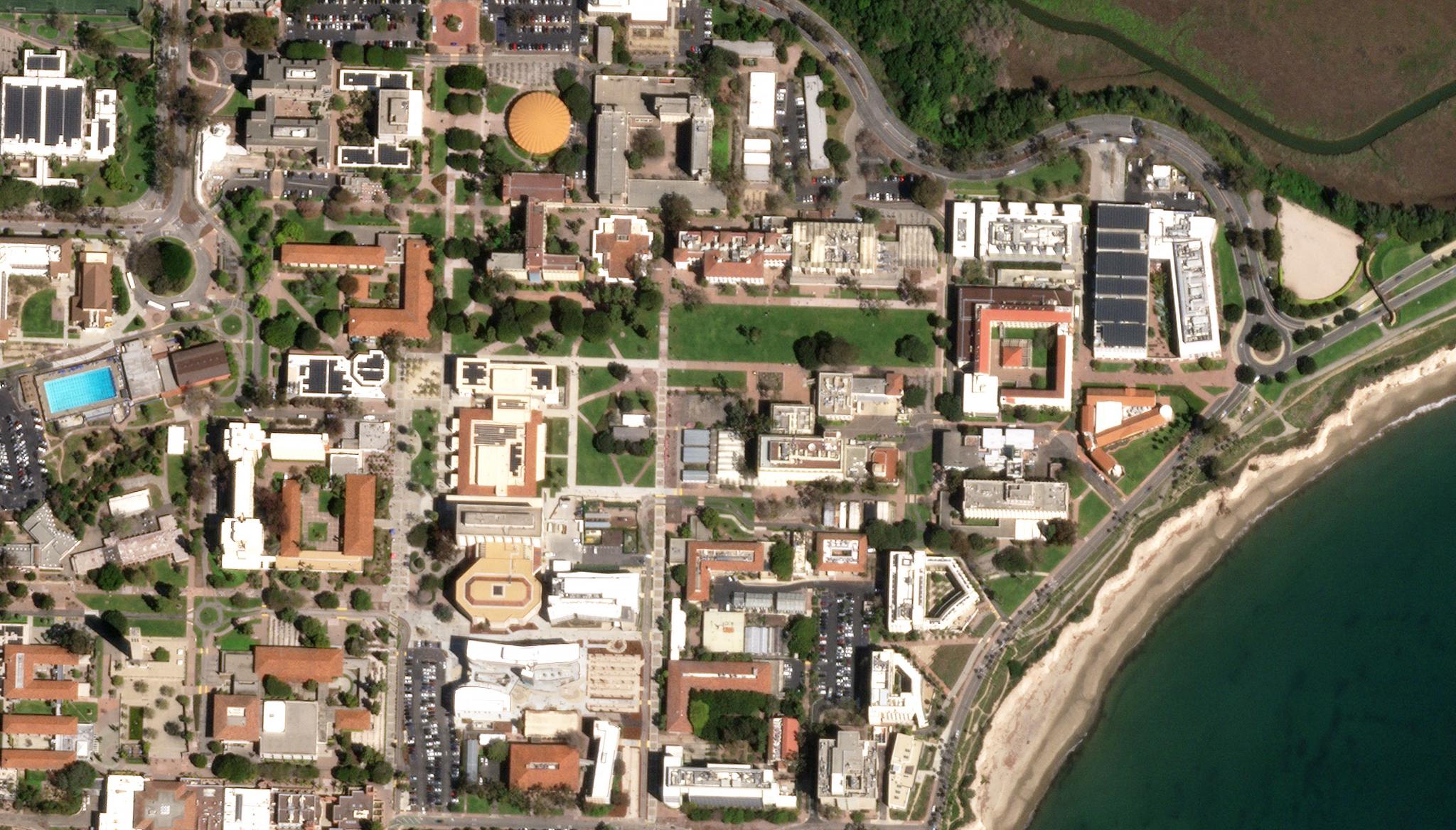Expanding Planet Data and Tasking Capabilities for Research in the University of California System

SkySat image of UC Santa Barbara campus taken April 7, 2023. © 2023, Planet Labs PBC. All Rights Reserved.
NewsOur Education and Research Program is continuing to grow across California! We’re proud to share that the University of California - Santa Barbara (UC Santa Barbara) is the latest university to gain a campus-wide Planet license. Through this multi-year collaboration, the university will operate with an Education and Research Campus License Bundle, which offers PlanetScope and SkySat archives, plus UC Santa Barbara will also be able to leverage additional SkySat Tasking services to advance their research capabilities.
With this latest engagement from UC Santa Barbara, Planet is now operating across eight of the institutions in the University of California system, which all utilize a wide cross-section of Planet products. With broad access to our unique data and services, UC Santa Barbara is beginning to integrate our geospatial insights into their departments, generating novel research insights focused on climate, ecology, and wildfire management.
The school has an established history of using remote sensing technology for academic research; and it boasts a number of established research programs and centers in the environmental field, which will now be able to inform their research with Planet’s global data, including the Bren School of Environmental Science and Management, the UC Santa Barbara Geography Department, the Earth Research Institute, the Climate Hazards Center, and the National Center for Ecological Analysis and Synthesis.
“With campus-wide access to Planet’s data, we are expecting students, researchers, and faculty to further expand their research and curriculum to tackle some of the most pressing planetary challenges of our time. We are also particularly excited to use the SkySat Tasking services to rapidly capture fine detailed images that reveal the impacts of wildfire, coastal storms, and allow our researchers to monitor conservation and restoration efforts across California and around the world,” said Kelly Caylor, Associate Vice Chancellor for Research.
Prior to obtaining this full campus-wide license, researchers at UC Santa Barbara had already leveraged our PlanetScope data for a number of studies, including publishing a critical scientific article on food security and smallholder farms in Ghana. Now, with this multi-year license, sitting within the Office of Research, faculty at UC Santa Barbara can rely on accessibility to our data for long-term research projects and it can also serve as a resource on which lecturers and educators can design curricula.
“This multi-year collaboration with UC Santa Barbara marks our next pivotal step towards enabling researchers across the state of California to analyze, quantify, and understand climate impacts on our environment, both locally here in California, and globally,” said Planet’s Dr. Joe Mascaro, Director, Science Strategy and Programs.
UC Santa Barbara has joined an ambitious set of universities who are advancing their geospatial research with full campus-wide Education and Research Program licenses, such as the University of Arizona, Stanford University, and Arizona State University. With a series of eight institutions within the University of California system now accessing Planet’s data and services through a variety of licenses, researchers across the state can generate collaborative studies, akin to the integrated work of schools in association with the Taylor Geospatial Institute and the Canadian boreal forest joint research effort (both groups leveraging Planet data for cross-university research initiatives).
This collaboration comes on the heels of our Education and Research Program’s transformation, which occurred at the beginning of 2023. Through strategic enhancements, we made the program more globally accessible than ever before. Curious researchers from more than 1,000 universities in 100 countries around the world are now accessing our data through Education and Research Program licenses. This accessibility transformation is one of several large programmatic announcements to come from Planet in the last year, including the launch of our Start-up Program in April, and the creation of our Nonprofit Program, and Food Security and Agricultural Monitoring Solution over the last six months.

Ready to Get Started
Connect with a member of our Sales team. We'll help you find the right products and pricing for your needs

